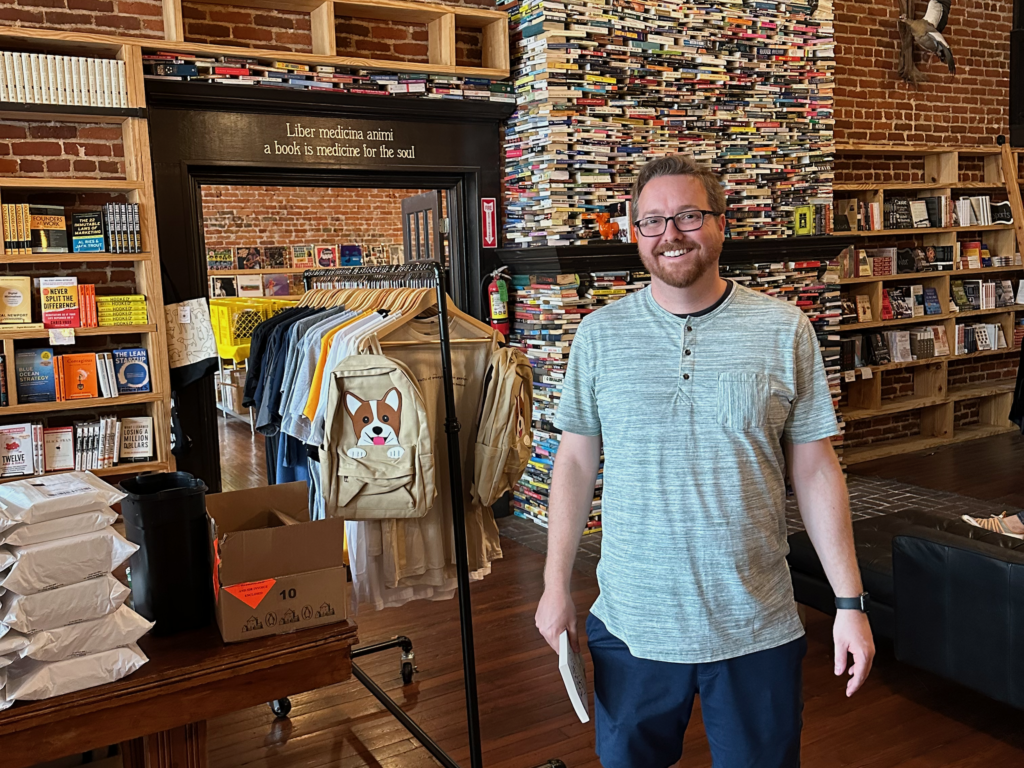Reading Leaves an Indelible Fingerprint Upon Your Thought Process, Attitude, and Life

Has someone ever asked you for key takeaways from a book you just finished, and you struggled to summarize what you read?
I have. It was embarrassing.
I felt like I should have more to show from the five to ten hours I had invested in that book. I’m actually so paranoid about remembering and applying what I’ve learned in books that I’ve developed a refined system of margin notes that helps me capture my biggest takeaways.
But as much as I love my note-taking system, I’ve begun to doubt my original premise that reading’s core purpose is to remember information.
I think reading is more complicated — and more beautiful — than just stocking our brains full of facts.
Reading blazes new trails in your brain. Within the pages of a book, the foremost scholars of history use their literary pickaxes to chisel away mental sluggishness and clutter — revealing buried gems of creativity, insight, and identity.
An Illustration from My Life
As one example, I want to drag you into a recent meeting we had at my company. (I know, I know…you hate meetings. Don’t worry. We’ll just take a quick peek, then you can sneak out the back door.)
I’m a member of our company’s leadership team, and we met to determine which “cultural norms” to crystallize for our company. In any brainstorming session like this, there are no right answers, but there are general concepts that work and others that don’t work.
I read a lot of business books, and one reason I do that is to help inform conversations like the one we had in that meeting. But one of my secret fears is that I won’t be able to marshal the facts I need in moments like this.
To my relief and excitement, during that conversation, multiple insights from my reading came back to me during our discussion:
- I thought back to the stories I’d read about the hard-driving culture of Uber, the creativity of Pixar, the blind optimism of WeWork, the greed of Enron, and the gritty resolve of Airbnb — and how each company’s norms had guided their business to either success or failure.
- I remembered reading that employees are more bought into principles when they have a hand in designing them, which prompted me to consider how we could crowd-source ideas and feedback from more people.
- I recollected numerous books talking about the power of stories, so I knew we’d have to come up with real-world examples and stories to memorialize each cultural norm we chose.
Every insight I had that day came from something I had read previously.
Sure, I also remembered some detailed facts about company cultures, but the most important insights were concepts I had absorbed through osmosis: each book had breathed its insights into me, even if I couldn’t have told you at the time exactly what I remembered from it.
The books had become a part of me.
They had imprinted on my brain and changed the way I approached problems. They had squirreled into my thinking process and changed who I was as a person and as a leader.
“I could not tell you specific passages or quotes from books. At some deep level, you absorb them, and they become threads in the tapestry of your psyche.” -Naval Ravikant
Experiences like that meeting have taught me that reading blazes new trails in the brain. Within the pages of a book, the foremost scholars of history use their literary pickaxes to chisel away mental sluggishness and clutter — revealing buried gems of creativity, insight, and identity.
Books Slowly Change You
The crazy thing is that you sometimes won’t even know how a book changed you until months or years later.
I’ve noticed this with philosophy books. Several years ago, I began reading Stoic philosophy (Marcus Aurelius, Seneca, Epictetus, etc.). Each book of theirs made an impact on me, but the biggest impact has been the collective imprint those books made upon my attitude and my perspective.
The most important insights were concepts I had absorbed through osmosis: each book had breathed its insights into me, even if I couldn’t have told you at the time exactly what I remembered from it.
For years, I’ve known that I should only focus on what I can control in any situation and not get preoccupied with what I can’t control. But there’s something about reading that advice in 100 different ways from Marcus, Seneca, and Epictetus that makes the message sink home much deeper.
The more I’ve read their stories about equanimity, the more tranquil I’ve become even when the seas of life crash around me. Wisdom from history’s greats has taught me that many of our daily worries are irrelevant.
“I’ve had a lot of worries in my life, most of which never happened.” -Mark Twain
The act of reading will transform you into a new person. You’ll take on qualities you didn’t previously possess, think in ways you previously couldn’t, and gradually chisel a new identity that’s shaped like whatever books you’re consuming.
So the next time someone asks you for book details and you struggle to come up with any literary wisdom on the spot, just tell them…
I read not to memorize but to imprint. Every book I read leaves an indelible fingerprint upon my thought process, my attitude, and my life.
Want to become a stronger leader?
Sign up to get my exclusive
10-page guide for leaders and learners.




So many books have changed me. I especially love when I am aware of the changes after they happen! Thanks for this.
Sure thing. I’m glad you enjoyed it!